This page contains a vocabulary list focused on exercises and fitness. You can expect to find games, flashcards, and other resources to help you learn and practice these terms. Explore the links provided to enhance your understanding of exercising vocabulary.
Exercising is a crucial component of maintaining a healthy lifestyle and overall well-being. Regular physical activity helps to improve cardiovascular health, increase muscle strength, and boost mental clarity. Whether it’s hitting the gym, going for a run, or practicing yoga, finding an exercise routine that suits your preferences and goals is key. By incorporating exercise into your daily routine, you can reduce stress, improve sleep quality, and enhance your overall quality of life.
Practice & Reinforce Your Learning
Exercising Vocabulary List
Cardiovascular fitness

Heart rate(Noun)
/Hahrt reyt/
Heart rate refers to the number of times the heart beats per minute, an important indicator of cardiovascular fitness during exercise.
Synonyms: pulse rate, cardiac rate, heart rhythm, heartbeat, cardiovascular rate, resting heart rate
Example Sentences:
- My heart rate increased significantly during my morning run, reaching 180 beats per minute.
- The doctor monitored my heart rate closely during the stress test to assess my cardiovascular health.
- I use a fitness tracker to keep track of my heart rate during workouts and ensure I am staying within my target zone.
Word Origin: The term "heart rate" is derived from the Old English word "heorte," meaning heart, and the Middle English word "rate," meaning a fixed amount or proportion. In the context of cardiovascular fitness, heart rate refers to the number of times the heart beats per minute, which is an important measure of how effectively the heart is pumping blood throughout the body during physical activity.

Endurance(Noun)
/En-duh-runs/
Endurance in cardiovascular fitness refers to the ability of the heart, lungs, and muscles to sustain prolonged physical activity.
Synonyms: stamina, resilience, fortitude, perseverance, durability, tenacity, strength, power, vigor, robustness, toughness
Example Sentences:
- His endurance was put to the test during the marathon, but he pushed through and finished strong.
- The athlete's impressive endurance allowed her to hike for hours without tiring.
- Training for a triathlon requires a great deal of endurance in order to swim, bike, and run long distances without stopping.
Word Origin: The word "endurance" comes from the Latin word "indurare," which means "to make hard" or "to make lasting." In the context of cardiovascular fitness, endurance refers to the ability of the heart and lungs to supply oxygen-rich blood to the muscles during prolonged physical activity. This type of endurance is often referred to as cardiovascular endurance or aerobic endurance, and it is essential for activities like running, cycling, swimming, and other forms of cardiovascular exercise.
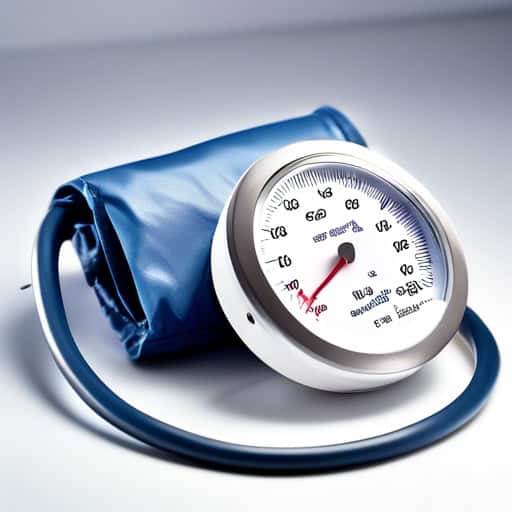
Blood pressure(Noun)
/Blud pre-sher/
Blood pressure measures the force of blood against the walls of arteries. Normal range is typically around 120/80 mmHg.
Synonyms: systolic pressure, diastolic pressure, hypertension, hypotension, cardiovascular health, circulatory health
Example Sentences:
- My doctor monitors my blood pressure regularly to ensure it stays within a healthy range.
- High blood pressure can increase the risk of heart disease and stroke.
- Exercise and a balanced diet can help lower blood pressure naturally.
Word Origin: The term "blood pressure" comes from the Old French word "pressur" meaning "oppression, urgency" and the Latin word "pressura" meaning "action of pressing." In the context of cardiovascular fitness, blood pressure refers to the force that blood exerts on the walls of the arteries as it is pumped around the body by the heart. Maintaining a healthy blood pressure is important for overall cardiovascular health and fitness.
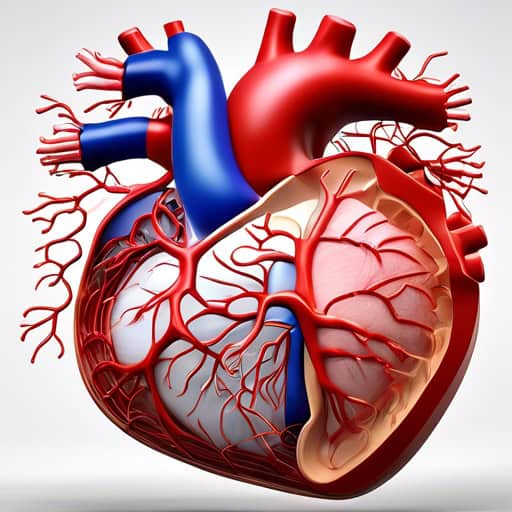
Cardiovascular system(Noun)
/Car-di-o-vas-cu-lar sys-tem/
The cardiovascular system is comprised of the heart, blood vessels, and blood, responsible for transporting oxygen and nutrients throughout the body.
Synonyms: heart health, circulatory system, vascular system, cardiovascular health, cardiorespiratory system, heart and blood vessels
Example Sentences:
- The cardiovascular system plays a crucial role in maintaining overall health and wellness.
- Regular exercise is essential for keeping the cardiovascular system strong and efficient.
- Proper nutrition and lifestyle choices can help prevent diseases that affect the cardiovascular system.
Word Origin: The term "cardiovascular" comes from the Latin word "cardi-" which means heart, and "vascular" which comes from the Latin word "vasculum" meaning small vessel. Therefore, the word "cardiovascular" refers to the heart and blood vessels. The cardiovascular system includes the heart and the network of arteries, veins, and capillaries that circulate blood throughout the body. In the context of cardiovascular fitness, this term specifically refers to the ability of the heart and blood vessels to efficiently deliver oxygen and nutrients to the body's tissues during physical activity.

VO2 max(Noun)
/Vee-Oh-Two Max/
VO2 max is the maximum amount of oxygen a person can utilize during intense exercise, measuring cardiovascular fitness levels.
Synonyms: aerobic capacity, maximal oxygen uptake, aerobic power, cardiorespiratory endurance
Example Sentences:
- My VO2 max test results indicated that I have excellent cardiovascular fitness levels.
- Training at high altitudes can help improve your VO2 max and overall endurance.
- Athletes often undergo VO2 max testing to determine their aerobic capacity and to tailor their training programs accordingly.
Word Origin: VO2 max stands for maximal oxygen consumption and is a measure of the maximum amount of oxygen that an individual can use during intense exercise. The "V" stands for volume, "O2" stands for oxygen, and "max" stands for maximum. The term was first coined in the 1920s by scientists studying the human body's ability to transport and use oxygen during physical activity. The concept of VO2 max is important in the field of cardiovascular fitness as it is a key indicator of an individual's aerobic capacity and overall cardiovascular health.

Pulse(Noun)
/Pulse: Puls (1 syllable)/
Pulse refers to the rhythmic throbbing of arteries as blood is pumped by the heart, often used as a measure of cardiovascular fitness during exercise.
Synonyms: heartbeat, rhythm, throb, palpitation, pulsation, cardiac cycle
Example Sentences:
- Her pulse quickened as she ran up the stairs, feeling her heart rate increasing with each step.
- The nurse checked the patient's pulse regularly to monitor their heart health during recovery.
- During the intense workout, he could feel his pulse racing and knew he was pushing himself to his physical limits.
Word Origin: The word "pulse" in the context of cardiovascular fitness comes from the Latin word "pulsus," which means a beating or throbbing. It is used to describe the rhythmic contraction and expansion of the arteries that is felt as a throb in various parts of the body, such as the wrist or neck. In the context of fitness, monitoring the pulse rate is important for assessing the intensity of exercise and the efficiency of the cardiovascular system.

Circulation(Noun)
/1. Car - kyuh - lay - shun
2. Vein - kyuh - lay - shun/
Circulation refers to the movement of blood through the blood vessels, delivering oxygen and nutrients to the body's tissues.
Synonyms: blood flow, vascular health, cardiovascular system, heart health, circulation, blood circulation, heart function, blood supply, cardiovascular circulation
Example Sentences:
- After exercising, your circulation increases to help deliver oxygen to your muscles.
- Poor circulation can lead to numbness or tingling in your extremities.
- Regular exercise and a healthy diet can improve circulation and overall health.
Word Origin: The word "circulation" comes from the Latin word "circulatio," which means "a going around in a circle" or "a circular movement." In the context of cardiovascular fitness, circulation refers to the movement of blood through the blood vessels of the body, facilitated by the heart. This movement is essential for delivering oxygen and nutrients to the body's tissues and removing waste products, helping to maintain overall health and fitness.

Aerobic exercise(Noun)
/Aerobic exercise: Air-oh-bik eks-er-size/
Aerobic exercise is a form of physical activity that increases the heart rate and improves cardiovascular fitness by utilizing oxygen.
Synonyms: cardio, cardiovascular exercise, cardiovascular fitness, endurance exercise, aerobic workout
Example Sentences:
- Regular aerobic exercise can help improve overall heart health and reduce the risk of heart disease.
- Running, swimming, and cycling are all examples of aerobic exercises that can help improve stamina and endurance.
- Incorporating aerobic exercise into your weekly routine can also help with weight management and improve mental health.
Word Origin: The word "aerobic" comes from the Greek word "aēr," meaning "air," and "bios," meaning "life." Therefore, "aerobic" literally means "involving or requiring oxygen." In the context of exercise, aerobic exercise refers to physical activity that involves the use of oxygen to meet the body's energy demands during prolonged periods of time. Aerobic exercise is typically characterized by moderate intensity and continuous movement, such as running, swimming, or cycling, and is known to improve cardiovascular fitness by strengthening the heart and lungs.
Strength training

Muscular endurance(Noun)
/MUS-ku-lar en-DUR-ance/
Muscular endurance is the ability of a muscle or group of muscles to repeatedly exert force over an extended period.
Synonyms: strength, stamina, power, durability, resilience, tenacity, robustness, fortitude
Example Sentences:
- After training consistently, her muscular endurance improved significantly, allowing her to perform more repetitions with heavier weights.
- Regularly engaging in high-intensity interval training helps to build muscular endurance by challenging the muscles to sustain efforts for longer periods of time.
- Professional athletes often incorporate specific exercises into their training routines to enhance their muscular endurance and stamina on the field.
Word Origin: The word "muscular" comes from the Latin word "musculus," which means "little mouse" or "muscle." "Endurance" comes from the Latin word "indurare," which means "to make hard" or "to endure." In the context of strength training, "muscular endurance" refers to the ability of a muscle or group of muscles to perform repeated contractions over an extended period of time without fatigue.

Squats(Noun)
/Squats:
Sqwats/
Squats are a compound strength training exercise that targets the lower body muscles including quadriceps, hamstrings, and glutes.
Synonyms: squatting, leg exercises, leg workouts, barbell squats, bodyweight squats, deep knee bends, lower body exercises, resistance training
Example Sentences:
- After a few weeks of incorporating squats into my workout routine, I started to notice a significant improvement in my lower body strength.
- I prefer to do squats using a barbell across my shoulders for added resistance and better activation of my muscles.
- Proper form is essential when performing squats to prevent injury and maximize the benefits of the exercise.
Word Origin: The word "squats" in the context of strength training comes from the Middle French word "esquatir," which means "to crush" or "to press flat." It was later adapted into the English language as "squats," referring to the exercise where an individual lowers their body by bending their knees and hips and then stands back up. The term "squats" has been used in the fitness and strength training community for many years to describe this particular exercise.
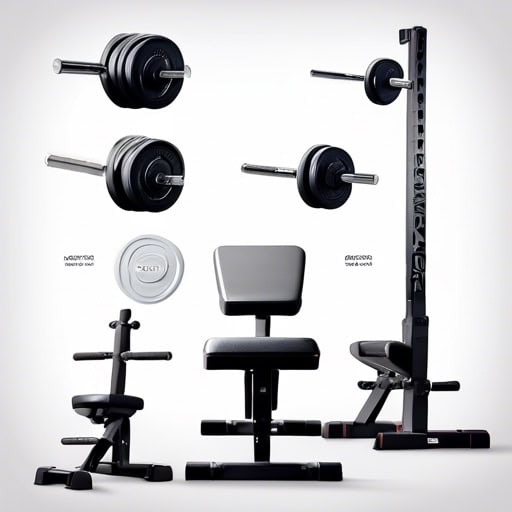
Sets(Noun)
/Sets: setz/
Sets in strength training refer to a group of consecutive repetitions of an exercise, typically completed before taking a rest.
Synonyms: reps, repetitions, rounds, circuits, exercises
Example Sentences:
- I did three sets of squats at the gym today.
- She completed five sets of bicep curls before moving on to the next exercise.
- He always pushes himself to do at least four sets of each exercise during his strength training sessions.
Word Origin: The term "sets" in the context of strength training comes from the Old English word "set" which means a group of things that belong together or are used together. In strength training, a set refers to a specific number of repetitions of an exercise that are performed consecutively before taking a rest. The term is likely derived from the idea of organizing or grouping a certain number of repetitions together to form a complete unit of work during a workout session.

Resistance(Noun)
/Re-sis-tance/
Resistance in strength training refers to the force that muscles must overcome to perform an exercise, typically using weights or bands.
Synonyms: strength, stamina, endurance, durability, fortitude, power, force
Example Sentences:
- Her muscles were burning with resistance as she pushed through the last few reps of her workout.
- The resistance on the machine was set to maximum, challenging her to push herself to the limit.
- Building strength requires gradually increasing the resistance in order to continue progressing in your fitness journey.
Word Origin: The term "resistance" in the context of strength training comes from the Latin word "resistentia," which means "opposition" or "struggle against." In strength training, resistance refers to the force that muscles must overcome in order to perform a specific movement or exercise. This resistance can come from various sources, such as weights, resistance bands, or body weight. Trainers use resistance to challenge muscles and stimulate growth and strength.

Repetitions(Noun)
/Re-puh-ti-shuns/
Repetitions refer to the number of times an exercise is performed in a strength training routine to target specific muscle groups.
Synonyms: sets, rounds, cycles, iterations, loops, circuits
Example Sentences:
- During my workout, I aim to do ten repetitions of each exercise to really target my muscles.
- I noticed that increasing the number of repetitions has helped me see more progress in my strength training routine.
- It's important to maintain proper form and control during repetitions to prevent injury and maximize the effectiveness of the exercise.
Word Origin: The word "repetitions" in the context of strength training comes from the Latin word "repetitio," meaning a repeating or going over again. It refers to the act of performing a specific exercise or movement multiple times in succession in order to build strength, muscle endurance, and improve overall fitness. In strength training, repetitions are typically combined with sets (groups of repetitions) to create a structured workout routine.
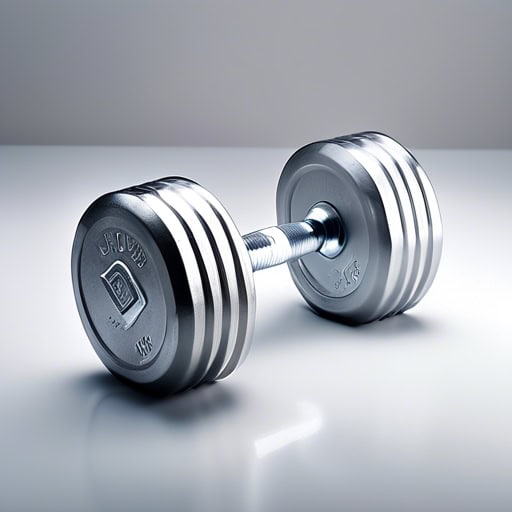
Dumbbells(Noun)
/Dumbbells: duhm-belz/
Dumbbells are handheld weights used in strength training exercises to target specific muscle groups and improve overall fitness.
Synonyms: weights, barbells, kettlebells, resistance bands, plates, exercise balls, medicine balls
Example Sentences:
- I use dumbbells to do bicep curls and shoulder presses at the gym.
- My personal trainer recommended incorporating dumbbell exercises into my workout routine.
- I prefer using dumbbells for strength training over machines because they engage more stabilizer muscles.
Word Origin: The word "dumbbell" comes from the term "dumb bell," which was used in the 18th century to refer to a type of weightlifting device that consisted of a metal bar with weighted balls at each end. The term "dumb" in this context is believed to have originated from the use of the word to describe someone who is unable to speak, implying that the dumbbell was a simple, quiet tool for exercise. Over time, the term evolved into "dumbbell" as we know it today.

Deadlifts(Noun)
/Deadlifts: Ded-lifts/
Deadlifts are a compound strength training exercise that involves lifting a barbell or weight off the ground using proper form.
Synonyms: Weightlifting, Powerlifting, Strength training, Resistance training, Barbell lifts
Example Sentences:
- I love incorporating deadlifts into my workout routine to target my lower back, glutes, and hamstrings.
- Proper form is crucial when performing deadlifts to prevent injury and maximize muscle engagement.
- After a few weeks of consistently doing deadlifts, I noticed a significant improvement in my overall strength and muscle definition.
Word Origin: The word "deadlift" comes from the Old English word "dead" which means "dead" or "lifeless" and "lift" which means to raise or elevate. In the context of strength training, the term "deadlift" refers to a weightlifting exercise that involves lifting a barbell or dumbbells from the ground to a standing position, without the use of momentum or assistance from other muscles. The term "deadlift" is used because the weight starts from a dead stop on the ground before being lifted, requiring the lifter to use pure strength to complete the movement.
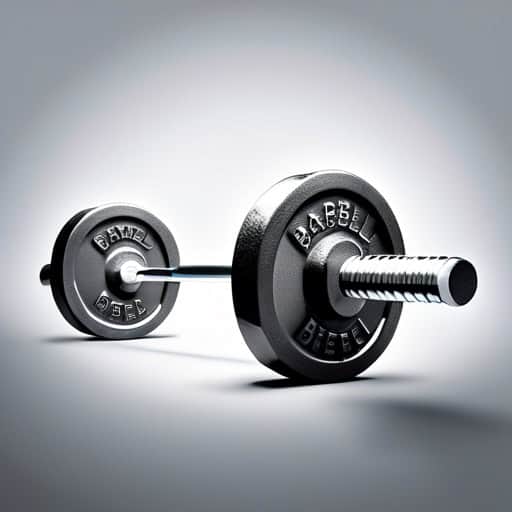
Barbell(Noun)
/Bar-bell: /bɑr bɛl//
A barbell is a long, straight weightlifting tool with weights on each end used for various strength training exercises.
Synonyms: Weight bar, bar, Olympic barbell, power barbell, lifting barbell
Example Sentences:
- I was able to lift a heavy barbell during my workout at the gym.
- The barbell slipped out of my hands while I was doing curls.
- I need to add more weight to the barbell for my next set.
Word Origin: The word "barbell" is derived from the combination of two separate words: "bar" and "bell".
The term "bar" refers to the long, straight metal rod that is used as the main component of a barbell. The word "bar" itself comes from the Old English word "bær", which means a rod or a stick.
The term "bell" refers to the round weights that are attached to the ends of the barbell. The word "bell" comes from the Old English word "belle", which originally referred to a bell-shaped object.
Therefore, when combined, the word "barbell" refers to a piece of strength training equipment consisting of a long metal rod with round weights attached to each end.
Endurance

aerobic exercise(Noun)
/aerobic exercise: ay-roh-bik eks-er-sahyz/
Aerobic exercise refers to physical activity that increases heart rate and improves cardiovascular endurance through sustained, rhythmic movements.
Synonyms: cardiovascular exercise, endurance exercise, cardio workout, cardio training, aerobic training, aerobic fitness, aerobic activity
Example Sentences:
- Aerobic exercise, such as running or swimming, is a great way to improve overall health and fitness.
- Regular aerobic exercise can help lower the risk of heart disease and improve lung function.
- Incorporating aerobic exercise into your routine can help you maintain a healthy weight and boost your mood.
Word Origin: The term "aerobic exercise" originates from the Greek word "aer," meaning air, and "bios," meaning life. It was first used in the 1960s to describe physical activities that require oxygen to meet energy demands during prolonged periods of exercise. Aerobic exercise is characterized by moderate intensity and long duration, focusing on improving cardiovascular endurance and overall fitness.

endurance(Noun)
/en-DUR-uhns/
Endurance is the ability to sustain prolonged physical or mental effort, allowing individuals to push through fatigue during exercise.
Synonyms: perseverance, stamina, fortitude, resilience, tenacity, grit, determination, patience, staying power, longevity, steadfastness
Example Sentences:
- Her endurance was put to the test during the marathon, but she pushed through and finished strong.
- The athlete's mental endurance allowed him to stay focused and determined during the grueling competition.
- Despite feeling physically exhausted, she relied on her endurance to keep her going until the end of the race.
Word Origin: The word "endurance" comes from the Latin word "indurare," which means "to harden" or "to make hard." This evolved into the Old French word "endurance," which means "to last," "to endure," or "to remain." The sense of strength and perseverance in the face of hardship or adversity has been associated with the word "endurance" since the late 15th century.

endurance training(Noun)
/en-DUR-uns TRAY-ning/
Endurance training is a type of exercise focused on improving cardiovascular fitness and stamina through prolonged, moderate-intensity physical activity.
Synonyms: long-distance running, stamina training, aerobic exercise, cardiovascular training, endurance exercise
Example Sentences:
- Endurance training is essential for athletes looking to improve their performance in long-distance races.
- Regular endurance training can help increase the body's ability to deliver oxygen to muscles, leading to improved overall fitness.
- Many marathon runners incorporate endurance training into their weekly workout routines to build up their stamina and endurance levels.
Word Origin: The term "endurance training" comes from the Latin word "endurare," which means "to harden" or "to make lasting." In this context, endurance training refers to a type of physical training that aims to improve the body's ability to withstand prolonged periods of physical exertion or stress.
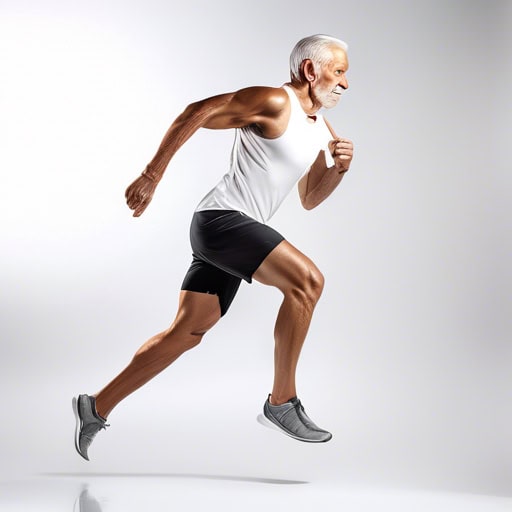
longevity(Noun)
/lon-jev-i-tee/
Longevity in endurance exercising refers to the ability to sustain physical activity over a prolonged period of time.
Synonyms: durability, resilience, stamina, perseverance, tenacity, fortitude, staying power
Example Sentences:
- Her commitment to regular exercise and healthy eating habits has contributed to her longevity and overall well-being.
- The key to achieving longevity in endurance sports is proper training, nutrition, and rest.
- Studies have shown that maintaining a balanced lifestyle can increase longevity and reduce the risk of chronic diseases.
Word Origin: The word "longevity" comes from the Latin word "longaevitas," which is derived from "longus" meaning "long" and "aevum" meaning "age." In the context of endurance, longevity refers to the ability to sustain physical or mental effort over an extended period of time. It implies durability, resilience, and the capacity to withstand challenges or hardships for a prolonged duration.

perseverance(Noun)
/per-se-ver-ance/
Perseverance in exercising refers to the ability to persist and continue pushing through physical challenges and obstacles without giving up.
Synonyms: determination, persistence, tenacity, grit, resilience, stamina, fortitude, diligence, dedication
Example Sentences:
- She showed great perseverance in completing the marathon despite the extreme heat and fatigue.
- His perseverance in mastering the piano paid off when he finally performed a flawless recital.
- The team's perseverance in training every day led them to victory in the championship game.
Word Origin: The word "perseverance" comes from the Latin word "perseverantia," which is derived from the verb "perseverare," meaning "to persist" or "to continue steadfastly." "Perseverare" is composed of the prefix "per-" meaning "thoroughly" or "completely," and "severus" meaning "strict" or "severe." In the context of endurance, perseverance refers to the ability to persist or continue steadfastly in the face of challenges or obstacles.

resilience(Noun)
/Re-sil-ience/
Resilience in endurance exercising refers to the ability to push through physical and mental challenges to reach fitness goals.
Synonyms: grit, perseverance, stamina, toughness, determination, fortitude, tenacity, strength, endurance, mettle
Example Sentences:
- Her resilience during the marathon was truly inspiring, as she pushed through the physical and mental exhaustion to cross the finish line.
- Despite facing numerous setbacks and obstacles, his resilience never wavered as he continued to train and improve his performance.
- The athlete's resilience in the face of adversity served as a reminder of the importance of mental toughness in achieving success in endurance sports.
Word Origin: The word "resilience" comes from the Latin word "resiliens," which is the present participle of the verb "resilire," meaning "to rebound" or "to recoil." In the context of endurance, resilience refers to the ability to bounce back or recover quickly from difficulties or setbacks. It is the capacity to withstand and overcome challenges, adversity, and obstacles, demonstrating strength, toughness, and perseverance in the face of adversity.

stamina(Noun)
/stam-i-nuh/
Stamina refers to the physical and mental strength needed to sustain prolonged physical activity or exercise without getting tired.
Synonyms: vigor, endurance, energy, resilience, strength, fortitude, staying power, toughness, power, vitality, robustness
Example Sentences:
- She showed impressive stamina during the marathon, finishing strong despite the grueling course.
- His rigorous training regimen helped build up his stamina for the upcoming competition.
- The athlete's mental stamina was tested during the final moments of the game, but he pushed through and secured the victory.
Word Origin: The word "stamina" comes from the Latin word "stamina" which means "stanch" or "standing" in Latin. The term originally referred to the upright, supporting parts of a plant, such as the stem or trunk. Over time, the word evolved to also encompass the idea of strength, endurance, and resilience, particularly in the context of physical or mental exertion.
Quick Facts
- Regular exercise can improve brain function and reduce the risk of cognitive decline as we age.
- Exercise has been shown to reduce symptoms of anxiety and depression, as it releases endorphins which act as natural mood lifters.
- High intensity interval training (HIIT) can be more effective for fat loss than steady-state cardio, as it continues to burn calories after the workout is over.
- Strength training can help increase bone density and reduce the risk of osteoporosis, especially in women.
- Consistent exercise can improve sleep quality, making it easier to fall asleep and stay asleep throughout the night.
